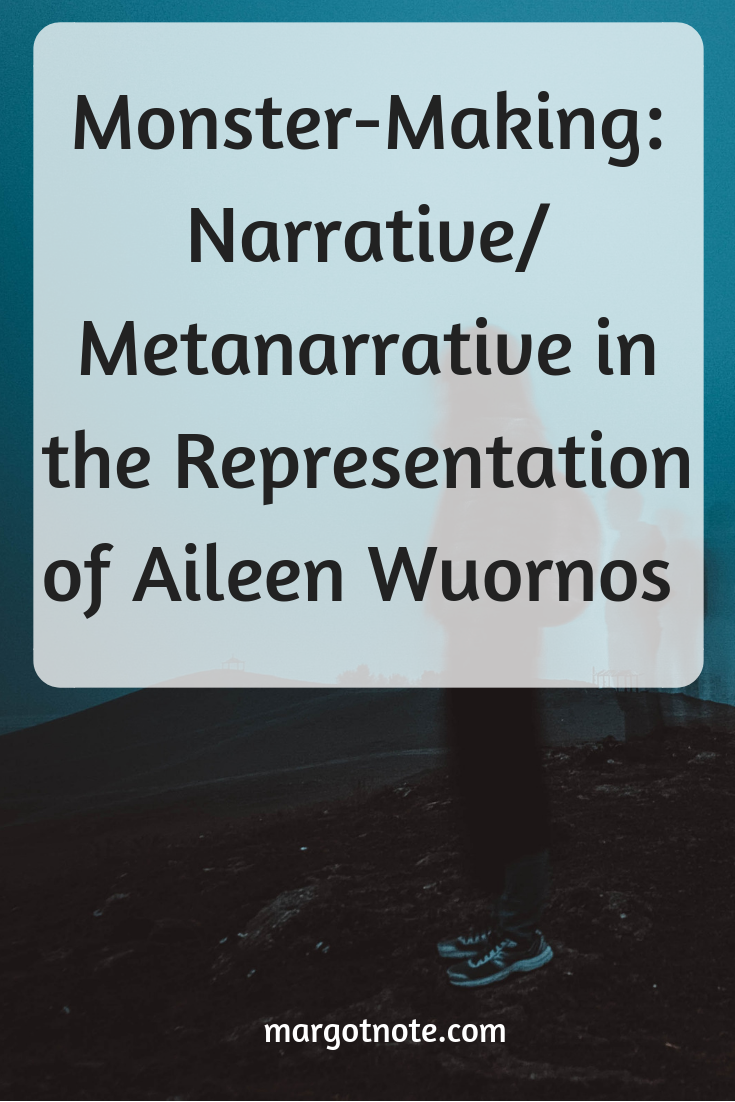In 2004, I wrote a master's thesis in History about Aileen Wuornos, who was hailed to be the first female serial killer. I examined her representations as "white trash," a lesbian, and a prostitute. When I began my project, few people had heard of her. When I completed my thesis, Wuornos had been executed and Charlize Theron had won multiple awards for her depiction of Wuornos in the 2003 film Monster. While I don't share my personal opinions in my thesis, I'll note here that I believe the first murder (against a convicted rapist) was in self-defense; the others may have been committed because she had reached her breaking point with difficult johns. Despite being a killer, I found Wuornos to be a tragic, sympathetic figure. Of everything I've written, my thesis seems to draw the most comments, queries, and citations, so I've made it available here.
From the Preface:
Aileen "Lee" Carol Wuornos, forty-six, died of a lethal injection at Florida State
Prison on October 9, 2002. She was the fifty-second person executed since Florida's
reinstatement of the death penalty and the third female execution in the state's history.
Eight hundred and five prisoners have been put to death in the United States since
1976, more than half since 1997. In response to the increase in state killings, the
American public has grown less interested in death penalty cases. As a result, news
coverage of executions has become inconspicuous. Wuornos's execution, however,
offered the media the opportunity to recount her final hours for an eager audience. The
public was informed that she declined her last meal and spent the night reading the Bible,
listening to the radio, and meeting with documentary filmmaker Nick Broomfield and
with her lifelong friend Dawn Botkins. Botkins told correspondents, "She was looking
forward to being home with God and getting off this Earth. She prayed that the guys she
killed are saved.... She was more than willing to go. It was what she wanted."
Florida Governor Jeb Bush signed her death warrant on October 2, 2002, after
psychiatrists found Wuornos competent for execution. Her death was timely--a month
before Bush's gubernatorial re-election bid--and controversial as well: four months
prior, the Supreme Court ruled that only juries should decide whether to sentence inmates
to death. In Florida, judges make the decision after a recommendation from the trial
jury. However, the Supreme Court's ruling did not prevent Wuornos's execution because
she confessed more than ten years before, volunteered for execution, and fired her appeal
lawyers.
Her cryptic final statement was, "I'd just like to say I'm sailing with the Rock and
I'll be back like Independence Day with Jesus, June 6, like the movie, big mother ship
and all. I'll be back." After an injection of potassium chloride, Wuornos took sporadic
shallow breaths, and her skin slowly turned ashen. She was pronounced dead at 9:47 a.m.
Terri Griffith, a daughter of one of the victims, told reporters, "She got an easy
death. A little too easy.... I think she should have suffered a little bit more. Use the
electric chair. Let her legs kick and smoke come out of her ears."
Download Monster-Making: Narrative/Metanarrative in the Representation of Aileen Wuornos.
Learn more by shopping books from the Bibliography:











